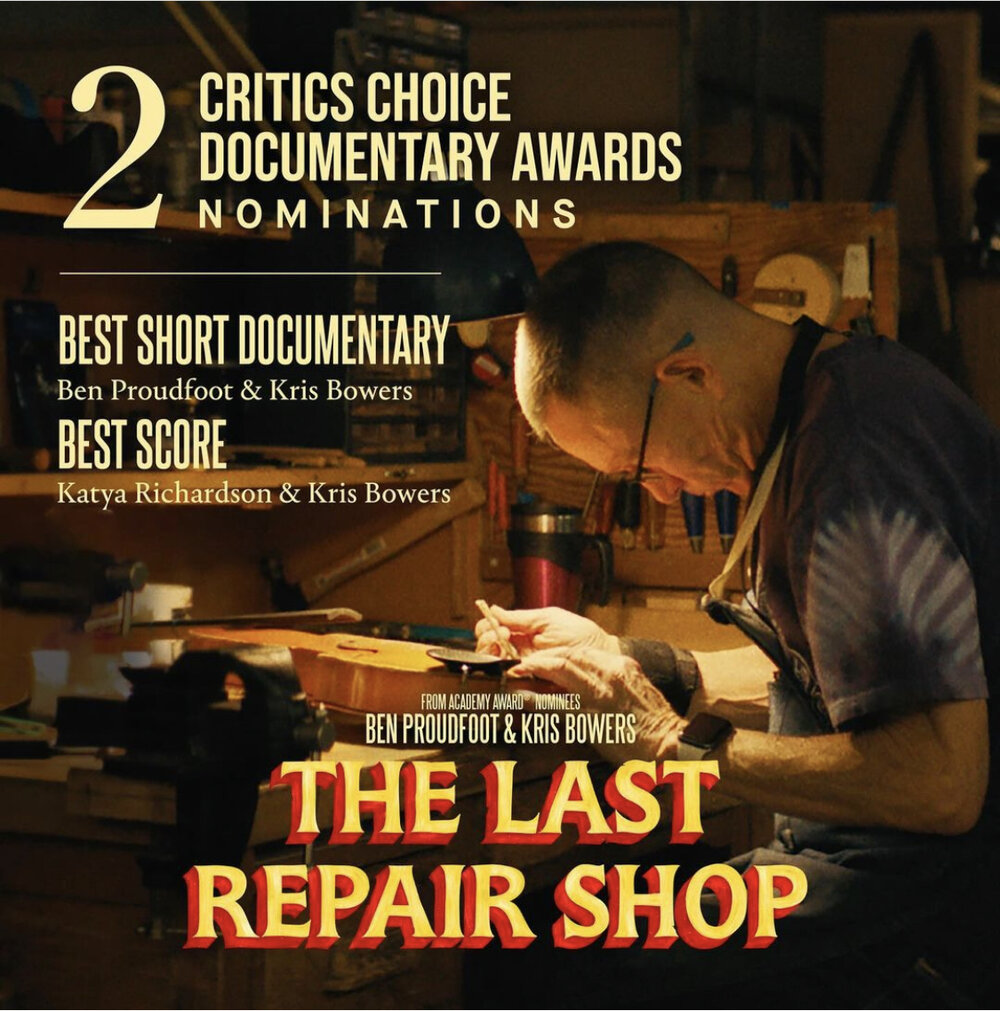The Last Repair Shop Gets My Vote As The Best Documentary Of 2023
The concept of longevity, of physical things that are built to endure, can sometimes feel like an anachronism in a consumer culture with far more coders per capita than old-school artisans. The men and women who hunch over workbenches and who make or repair non-digital objects with their hands — like the craftsmen of the Los Angeles Unified School District, depicted as unsung heroes in the poignant new documentary short The Last Repair Shop — can even feel a little like displaced refugees of a bygone era.
But the work that keeps the dwindling tribe of technicians busy in that Los Angeles repair shop, patching up the musical instruments of public schoolchildren, nevertheless feels surprisingly urgent and consequential in this documentary from directors Ben Proudfoot and Kris Bowers. One by one, The Last Repair Shop introduces us to students who explain, with beatific smiles on their faces, how instruments like the violin, the saxophone, and the piano have made a profound impression on their lives. Maybe even saved them.
"I love the violin," one proud young girl declares, holding her instrument triumphantly. "If I didn't have my violin from school, I'd probably ... I don't even know what I'd do. Don't even jinx me with that!"
Another young girl shows off her saxophone, polished to a perfect shine. "My school gave me a saxophone, a case, everything I need.
"Whenever I'm feeling tense or angry," she continues, before playing a short, hauntingly beautiful melody, "the saxophone calms me down. But the G-sharp key always gets stuck."
The documentary, which is streaming for free on The Los Angeles Times' YouTube channel as well as at latimes.com, then draws a straight line from those instruments and the children who play them back to the school district's repair shop — to the men and women who polish the brass, fix the keys, re-string the bows, and search for the cracks in broken instruments. Some of them have spent years mending cracks in their own broken lives, like the repair shop supervisor who still chokes up over the murder of his father and the young immigrant mother who got this job when she was penniless.
"When wood breaks, it breaks in unique ways," muses one repair shop technician, who as he talks weaves in the story of his coming out as a young man.
"It's really hard being a kid. Some of them come from a place of love and support, and others come from huge dysfunction. The emotional broken things, and the mental broken things, are more difficult. You can't glue that back together."

I've already watched this documentary short twice and can't wait to dive back into it a third time. It's a beautiful tour de force of storytelling. I was particularly drawn to the repairman with a gravelly voice and a twinkle in his eye named Duane; he fell in love with music as a young man, begged his mother to front him $20 to buy a violin he found at a swap meet, and would not only go on to master the instrument but perform all over the world. It's also the reason he met his wife, who was in the audience one day listening to him play.
So when he explains to the camera that fixing this one instrument could change a child's entire life, you believe him. "You could feel like you're fixing the instrument of a future Grammy winner, if you wanna kinda dream a little bit," he adds, with a broad smile.
Los Angeles, we learn through the documentary, is the last US city to provide freely repaired music instruments to schoolchildren. It continues to do so, a closing voiceover narration tells us, because the repair shop does a job that's about more than just fixing things. There's something much more important and long-lasting going on here. "I think a lot of people see a broken thing, and they just think it's broken," one of the craftspeople muses.
"It could be anything. Maybe it's public schools. Or maybe it's the United States. Maybe it's just a $20 fiddle found at a swap meet. But when we see a broken thing, we think, oh — with a little something here, and a little something there, we can fix the part that's broken and make things whole again."
